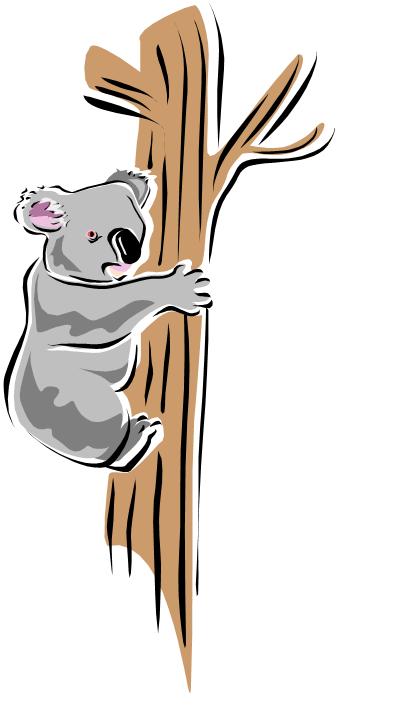

Conflicts among gorillas are most often resolved by ritualistic displays intended to intimidate without becoming physical. These displays can include chest beating, ground stomping, and other showings of strength.
Gorilla-like behavior can surface under a wide variety of circumstances in the workplace. Perceived “threats” such as:
• authority being taken away
• new policies and procedures
• company reorganization
can cause the “gorilla” to emerge by making individuals feel self-doubt or under appreciated. Skill sets might be stretched into previously un-treaded territories, new responsibilities can trigger inner feelings of self-doubt, or the person isn’t feeling as challenged in a new role which they feel is beneath their abilities.
Consider this interview scenario; a management level person is participating in interviews where the new employee will become their peer. How will they view the interviewees if they are experiencing self-doubt about themselves and their own work?
It’s important to know as much about whom you are interviewing with and how your level of experience compares with them so you might be able to spot areas that would cause the interviewer to pound their chest and try to intimidate you. If you find yourself in this Gorilla’s cage, seek common ground where you can show how you will be a supportive experienced member of their team working towards a common goal.
But don’t be afraid to pound your chest a little in the interview. For example, I recently had a conversation with someone who had performed 4 general ledger systems conversions in his career and they were interviewing for a job that required that type of experience. Having successfully completed this work “only” 4 times before had left this person feeling that there were other, more qualified consultants in the world who perhaps had far more experience. The truth of the matter was, that in the interview setting they were the expert in the room because no one in that company had ever completed more than one system conversion. So, while you might suspect you aren’t the “most” experienced at something, it doesn’t mean you aren’t the most experienced person at that moment and, therefore, the immediate subject matter expert in the eyes of the hiring manager.
Be proud of your accomplishments and achievements. Prepare for every interview by researching the individuals you will be interviewing for and do a personal inventory of what you have made, saved, or achieved in the past and how your accomplishments will benefit your potential new employer in the future.
Have a bit of the gorilla’s confidence while steering clear of threatening territory!
Tags: accomplishments, advice, attitude, bad interview, conflict resolution, employers, experience, interview tips, interviewing, resume
Have you ever left an interview thinking that you could have done better? Or maybe it was the interviewer who prevented you from showing what you are worth? It seems that bad interviews happen more than good ones and we shouldn’t cling to the negative aspects. Companies interview more than one person for every available position; and it usually takes more than one interview to finally obtain the job. It is understandable that you can’t ace them every time.
“BAD INTERVIEWS” can fall into a couple of categories:
1 – An interview where you feel you performed poorly or
2 – An interview where the interviewer was not prepared or ill-equipped to perform the interview
1. There’s nothing worse than getting in the car, cab, or subway after an interview and remembering something you wish you would have said better. It’s the old “shoulda woulda coulda” game and it happens to everyone at some point. Knowing how to let go of the bad and cling to the good is how the Koala stays in the tree. Keeping a journal or jotting down your thoughts helps you to avoid the same mistakes twice and recognize and avoid the “weak branches”. If you are keeping a well organized job search folder, you can refer back to your previous notes as reminders before the next interview.
Then there’s the time where you realize you said something you shouldn’t have. Again, making notes of what went well or poorly will help you avoid repeating mistakes. Do your best to avoid negative topics like, what your boss does wrong, what you don’t like or (worse yet) who you don’t like. Even if you’re feeling comfortable with someone, don’t let them drag you into the gossip mill. Find something positive to say about all those people instead of the easy to point out flaws. The more positive or stronger the topics or branches, the higher you will climb in the interviewer’s regard. For example, working for a boss that is never available could be re-worded to something like “my boss was very active in many parts of the company which required me to make special effort to get on their calendar to get my questions answered which, ultimately, made me a better time manager.”
2. It is possible a bad interview stems from the interviewer themselves being not adequately prepared or in the proper frame of mind to focus on you at the appointed time. The interviewer seems distracted reading their emails, taking phone calls, or someone pops in. In today’s hectic business climate, interruptions are expected. Don’t take them personally! Arriving well prepared with a list of questions about the job, the company, and specific projects that have been going on the past six months or so help you to bring these frequently distracted interviewers’ focus on you, the job, and why you are the fittest for the climb.
There’s also the interview where you just don’t hit it off with the person with whom you are interviewing. There are certain techniques you can use to establish rapport quickly to ensure you navigate the sparse branches and make the best first impression every time. For instance, people like to talk about themselves, so attempt to draw them out!
Remember, interviewing is a subjective exercise. There’s no way you can predict the outcome so the best way to win is to listen carefully to the questions being asked, thinking about “what’s in it for them (the company)” not “what’s in it for you”. Focus on the company’s needs as they state them and offer specific examples of how you have performed those duties in the past or could contribute directly.
Be like the Koala and steer clear of the weak branches of conversation, look out for opportunities to climb high on positive topics, and be prepared to wade through a sparse tree and help the interviewer focus.
A few quick tips to keep in mind: Show good manners. Say please and thank you to everyone you meet, not just the decision maker. Dress professionally, even if it’s a casual environment Sit up straight, be engaged in the conversation, and DO YOUR HOMEWORK. Research the company so you know what they do and who their major competitors are so you can ask thoughtful questions. Show them you’re into them…and always send a thank you note!
For a webinar on this topic, please visit http://www.carolynthompson.net/interviewingskillswebinar.htm.
Carolyn Thompson
Author of TEN EASY STEPS TO A PERFECT RESUME…available on Amazon.com!
and TEN STEPS TO FINDING THE PERFECT JOB…available on Amazon.com!
Tags: advice, bad interview, conversation, interview, interviewer, interviewing, Job Search, mistakes, opportunity, preparation, regret, tips








